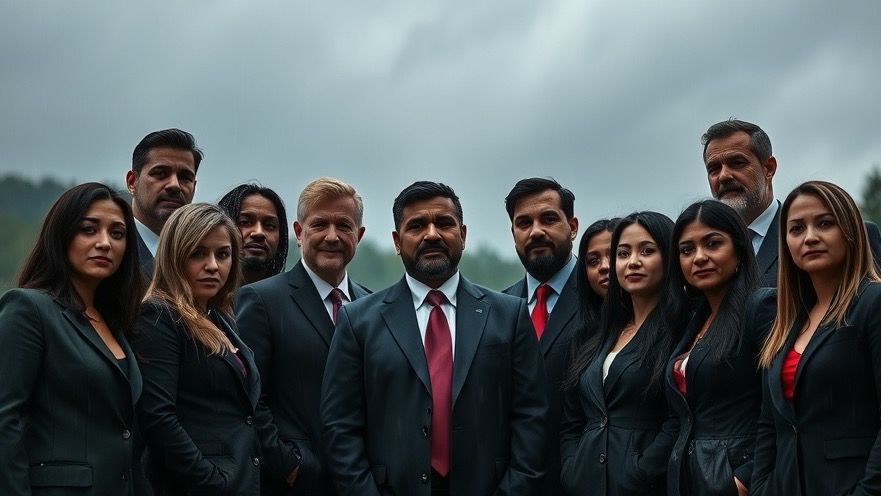
The Current State of Education Under Political Scrutiny
The education system in the United States is at a crucial juncture. Increasingly, conservative voices are calling out what they perceive as liberal attacks on educational policies and moral standards. Under the Trump administration, significant transformations have been proposed, aimed at reinstating what many see as foundational truths within the educational infrastructure. As highlighted in the video How We Win the Culture War, there is a palpable urgency among faith-driven conservatives to reclaim influence in education and media, positioning citizens to actively engage in this battle.
In How We Win the Culture War, the discussion dives into the crucial need for Christians to influence education policy, prompting our deeper analysis of this cultural moment.
A Wake-Up Call for Christian Involvement
For too long, Christians have been passive spectators; it's time for that to change. Tim Barton eloquently articulated that Christians should not be merely cheering for their political figureheads but should advocate for constitutional principles. Urging viewers to reach out to their elected officials, he pronounces, "We the people are in charge." His perspective aligns with the belief that grassroots engagement is vital for creating sustainable changes. This challenge is not only political but also deeply spiritual, as Christians are called to be active stewards of the values they hold dear.
Understanding the Historical Context of Education
Understanding education's evolution is crucial, particularly as discussions around the Department of Education and curriculum policies heat up. The founding fathers believed that education was a local, familial responsibility rooted in morality and religion—a stark contrast to contemporary federal involvement. As Gene Bailey noted, the federal government has taken on tasks outside its constitutional authority, with the Department of Education being a prime example. This historical backdrop underscores the necessity of local control and accountability in education, a call to return to foundational principles that emphasize parents' roles in raising their children.
The Role of Community in Cultural Change
The cultural climate today demands collective action. Many figures in the video, including Barton and Bailey, emphasize that community involvement in local governance is where true change can occur—at library boards, city councils, and school districts. As the video suggests, it is not only the role of the executive branch to legislate; active participation from the citizenry is equally crucial. This sentiment highlights an urgent need for the church and its constituents to rise up and seize opportunities to influence public policy and education settings effectively.
Bringing Faith into Public Discourse
In the face of secularism and moral relativism, Christians are reminded of their mission to infuse faith into public discourse. Recognizing that all moral standards are not created equal, this discourse should lead to questioning the foundations of morality taught in schools. Many often ask, whose moral framework will be the standard? As articulated, it is essential to advocate for the biblical framework that promotes the common good. Findings from religious history support the idea that an objective moral standard is imperative for a just society.
Calls to Action for Faith-Driven Conservatives
The call to action resonates throughout the conversation presented in the video. With the upcoming Armed Media Conference, Christians are encouraged to gather as a mobilized force for moral and spiritual awakening. This conference aims to equip believers with the tools needed to amplify their voices, share their messages, and possibly turn the tide of culture back to one that honors God. The sentiment shared through various speakers highlights the belief that engaging in public arenas is essential for reformation.
Now more than ever, the time for revitalization, knowledge, and involvement in our cultural sphere has come. Christians must not shy away from standing for truth in a society increasingly void of it. As we reflect on the discussions from How We Win the Culture War, the path forward becomes clear; we must embody the change we wish to see through informed advocacy, community engagement, and unwavering faith.
 Add Row
Add Row  Add
Add 




Write A Comment